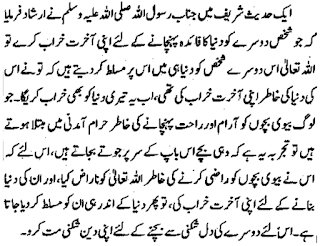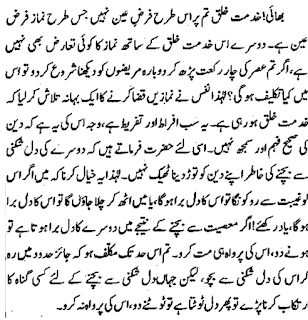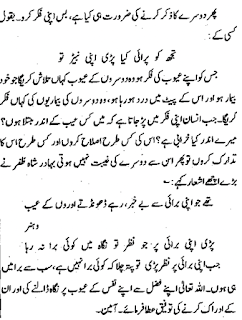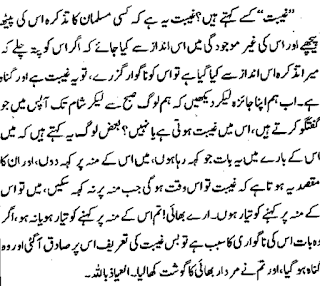GHEEBAT (BACKBITING) AND ITS TREATMENT: 21 (a talk by Mufti Taqi Usmani DB)
Making hurtful jokes is not permitted Often times friends joke with each other and make fun of each other. But sometimes it happens that a friend is joking with another friend in jest and does not intend to hurt his feelings, but some people are more sensitive than others. They cannot tolerate having been made fun of and get irritated and unhappy as a result. Other friends then tease them even more and make even more fun of them and enjoy their getting irritated. In such situations, even though the other friends do not intend to hurt his feelings, and are saying these things as a joke, but because he does not like it and it hurts his feelings, such joking is not permitted. It is not permitted in Shariah to say anything to anyone which hurts his feelings, even if it is said as a joke.





















